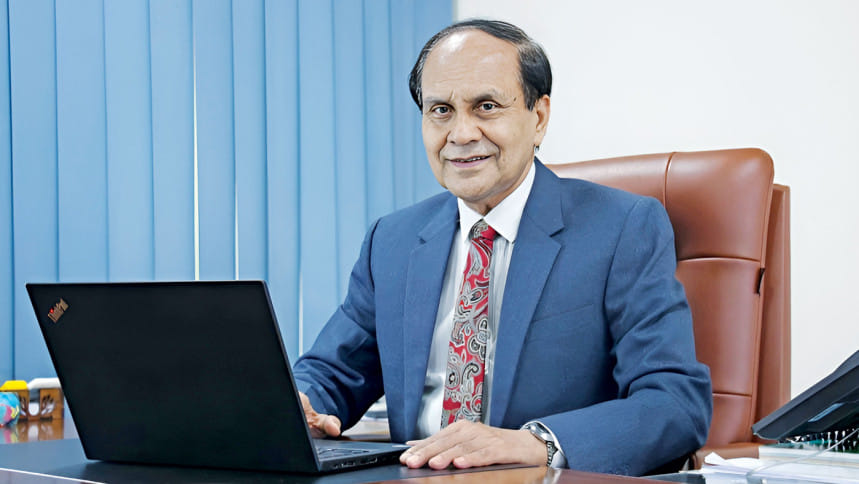Empowering Bangladesh’s youth for the next leap

In the vibrant landscape of the 21st century, Bangladesh strategically leverages its significant youth population, comprising about 28% of the total population aged 15 to 29, to propel itself into a transformative era. Positioned at the crossroads of progress, Bangladesh is keenly investing in proactive initiatives for education, skill development, and capacity building to prepare the younger generation for a significant leap forward. Out of the country's total population of 16.98 crores, the youth labor force accounts for 36.53% of the total labor force. Despite this demographic advantage, challenges like higher youth unemployment rates, and low wages persist.
As the backbone of the nation's progress, the youth must be adequately prepared to take on the challenges and opportunities that lie ahead. Improving the quality of education, greater emphasis on technical and vocational education and training, and ensuring access of marginalized youth to education and entrepreneurship are essential for youth capacity development. Bangladesh's education system needs to prioritize job-oriented technical and vocational education and training (TVET). Bangladesh needs to start a transformative process, emphasizing diverse skill sets beyond traditional academics and ensuring seamless alignment with job market demands. TVET can ensure a smooth transition to decent workplaces. As Bangladesh aims for a knowledge-based economy, the education system stands as the linchpin for realizing this ambitious vision.

As the country shifts from an agricultural to a manufacturing and service-based economy, vocational training for the youth becomes a key strategy for creating a productive skilled pool. Despite the potential, there is a prevalent apathy towards vocational education in Bangladesh, often associated with the misconception that it is intended for the poor or less meritorious students. Government and non-government agencies are implementing large-scale programs to promote vocational education. 73% of the German population are skilled which is 66% in Japan, 65% in Singapore, and 55% in China. Against this, Bangladesh's skilled population is only 14% of the total population.
Bangladesh, like the rest of the world, is grappling with the adverse effects of climate change. Our youth need to be equipped with green skills that align with sustainable development goals. The integration of environmental awareness, renewable energy, and eco-friendly practices into educational curricula is essential. Initiatives aimed at fostering a sense of environmental responsibility among the youth will contribute to a greener and more sustainable future.
Currently, our economic growth is not accompanied by expected equity. Our youth need to be educated to ensure sustainable growth with equity. Private sector involvement is crucial for fostering partnerships between educational institutions and industry. The industrial zones of Chittagong and Gazipur showcase a symbolic relationship between academia and industry. Internships and on-the-job training have become integral components of the graduates' employability.
The advent of the Fourth Industrial Revolution (4IR) has ushered in unprecedented opportunities and challenges. Bangladesh's youth must be technologically adept to thrive in this era. The Government's 8th 5-year Plan and Perspective Plan 2021-2041 also focused on integrating Information and Communication Technology (ICT) into the education system to prepare the youth for the digital age. While commendable progress is evident, Bangladesh faces challenges like technological evolution, gender disparities, and regional variations in educational access. Transformative opportunities emerge in leveraging artificial intelligence, promoting entrepreneurship, and nurturing innovation among the youth.
Dhaka's entrepreneurial spirit, supported by Government initiatives like iDEA, contributes to economic growth and innovation. The Global Entrepreneurship Monitor (GEM) report highlights Bangladesh's impressive entrepreneurial activity, positioning the country as a dynamic hub for startups. Bangladesh's Delta Plan 2100, Education Policy 2010, National Youth Policy 2017, and Skills Development Policy 2022 collectively lay the foundation for nurturing a skilled and empowered youth population. Effective implementation of these policies is crucial for preparing youth to face the challenges and create a knowledge-based society.
Youth's preparedness in education and skill development capacity building requires concerted efforts by the government, private sector, and educational institutions. However, the journey towards ensuring a workforce ready for the next big lift requires continuous collaboration, adaptation, and innovation. With a youthful population eager to contribute to the nation's progress, Bangladesh stands on the cusp of a transformative phase, provided it remains committed to empowering its youth through robust skill development initiatives.
According to Labor Force Survey 2022, approximately 9.6 million individuals in Bangladesh, find themselves not engaged in employment, education, or training (NEET). Among them, 65.5 percent are females. This high NEET rate among young women is fully undesirable.
According to Labor Force Survey 2022, approximately 9.6 million individuals in Bangladesh, aged 15-29 find themselves not engaged in employment, education, or training (NEET). Among them, 65.5 percent are females. This high NEET rate among young women is fully undesirable. The prevailing skills mismatch contributes to elevated rates of youth unemployment, underemployment, and economic inactivity.
However, it is gratifying to note that female participation in Bangladesh's labor force has increased to 42.77% in 2022, up from 36% in 2010. It is crucial to tackle the skills gap among adolescent girls.
Tackling gender disparities involves not only economic empowerment but also fostering societal change. Embracing these opportunities will position Bangladesh to rise above challenges and chart a course toward a more inclusive society with an economically vibrant future.
As Bangladesh paves the way for the future, the preparedness of its youth becomes a critical factor in determining the nation's success. Green skills, technological proficiency, strategic plans and policies, job creation through skill education, and youth development initiatives collectively shape the trajectory of Bangladesh's youth. The synergy between government policies, private sector initiatives, and the tireless efforts of NGOs is imperative for creating an environment where the youth can thrive and contribute meaningfully to the nation's development. ICT Policy 2018, Youth Development Policy 2017, NSDP 2011, etc. will play a catalytic role in empowering our youth for the country's sustainable growth and development.

 For all latest news, follow The Daily Star's Google News channel.
For all latest news, follow The Daily Star's Google News channel. 



Comments